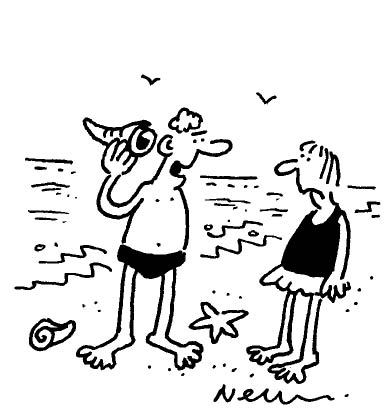
The coalition’s approach to foreign policy is not to have a foreign policy.
The coalition’s approach to foreign policy is not to have a foreign policy. There is no Cameron doctrine. As events unfold in Egypt, the government does not even know what it wants to happen. Alistair Burt, the Middle East minister, summed up this position rather brilliantly when he said ‘the tide is turning very strongly. It’s not for us to sit here in London and work out where that tide is going to go.’
History had reached a turning point but the coalition wasn’t sure which way it wanted it to turn.
It is strange to think that in 2005 David Cameron ran for the Tory leadership as the neoconservative candidate. In late August, with his campaign stuttering, Cameron delivered an unapologetically hawkish speech: jihadism was equivalent to Nazism and weakness was provocative. Whether he ever believed what he was saying is debatable. This sight of Michael Gove standing at the back of the auditorium mouthing the words rather suggested that these were not Cameron’s own thoughts.
Once elected, Cameron ploughed a different foreign furrow. On the fifth anniversary of 9/11, Cameron said that he was not a neoconservative. Since then, Tory foreign policy has been all about moving the country on from the ideological certainties of the Blair years. But in doing so, the Tories have left themselves without a way of understanding the world.
Some Conservatives are happy with this intellectual vacuum. For them, Hippocrates is a better guide to foreign policy than Thucydides. First do no harm they say, pointing to Iraq.
Those within the party machine plead mitigation. They claim that ‘Blair inherited a very different Britain’. The fiscal crisis and the public’s scepticism of foreign entanglements post-Afghanistan and Iraq, they say, makes an ambitious foreign policy impossible. ‘When your home base is shaky, you have to pick your fights more carefully,’ says one Tory.
Add to this list of impediments Barack Obama and the Liberal Democrats. Britain’s grand strategy tends to follow that of the United States. But the Obama administration lacks any coherent approach to foreign policy. Rather, its aim is to exit conflicts started by the Bush administration as gracefully as possible. But even if Obama did have plans for a new world order, the Conservatives would probably find their coalition partners, the Liberal Democrats, reluctant to go along with them.
At the moment, the coalition’s foreign policy consists of little more than trying to flog things to foreigners. Cameron has made great play of being a ‘salesman’ for Britain abroad. He has taken businessmen on high-profile visits to India and China and appointed a slew of trade ambassadors.
The Prime Minister himself talks about the need to ‘reorientate British foreign policy and make the Foreign Office more commercially minded’. As part of this process, Simon Fraser, the permanent secretary at the Department of Business, Innovation and Skills, has been made head of the diplomatic service. But this approach doesn’t go far when a government is faced with events such as those taking place in the Arab world this week. In times such as these, one needs a proper strategic foreign policy.
William Hague should be ideally equipped to develop one. He has a formidable intellect and an extensive knowledge of the world. But since his return to frontline politics in 2005, he has not been the figure he once was. He is proof that a politician without ambition is one devoid of energy or drive.
Hague’s colleagues speculate that he wanted to be shadow foreign secretary rather than shadow chancellor because that allowed him the time to concentrate on his outside interests. In government, he has continued to disappoint his admirers. Even loyalists inside No. 10 wonder why Hague has made no impact at the Foreign Office. Tory MPs have been left wondering why the fight has gone out of him. One Cabinet member says that it is as if someone has ‘drained the battery fluid’ from the energetic Eurosceptic they once rallied around.
In the bars of Westminster, they say he was traumatised by his time as Tory leader. Another rumour is that Hague’s faith in his own judgment has been shaken by Iraq, a war he supported with almost unparalleled vigour from the back benches. Others just think that he’s fallen out of love with politics, with the final straw being the prurient discussions of his private life, and that he’ll be off to the United States after the next election. Hague’s closest allies emphatically deny this theory, however.
Whatever the cause, Hague has yet to give the Foreign Office a clear sense of direction. Mandarins complain that so far he has only seemed interested in improving standards of grammar among diplomats.
But governments can’t get by without a foreign policy, however much they want to. Countries either shape the world or are shaped by it. The rest of the world will not put itself on hold until the coalition has time to turn its mind to foreign policy. Friends of Hague say that he may now be ‘re-energised’ by grappling with the question of Egypt. But the problem is fiendishly complicated. Even the more hawkish members of the Cabinet are divided over it. Cabinet members say that Michael Gove thinks that the government must be on the right side of history, favouring democracy. Liam Fox is more concerned about the geopolitical effects of the fall of the regime.
As the Suez crisis demonstrated, Britain no longer has the power to dictate what happens in Egypt. But in concert with the United States, it does have the ability to influence events. At the very least, these two powers can determine which side the West is on. But before the government can do that, it needs to know what it wants. That requires a foreign policy.







Comments